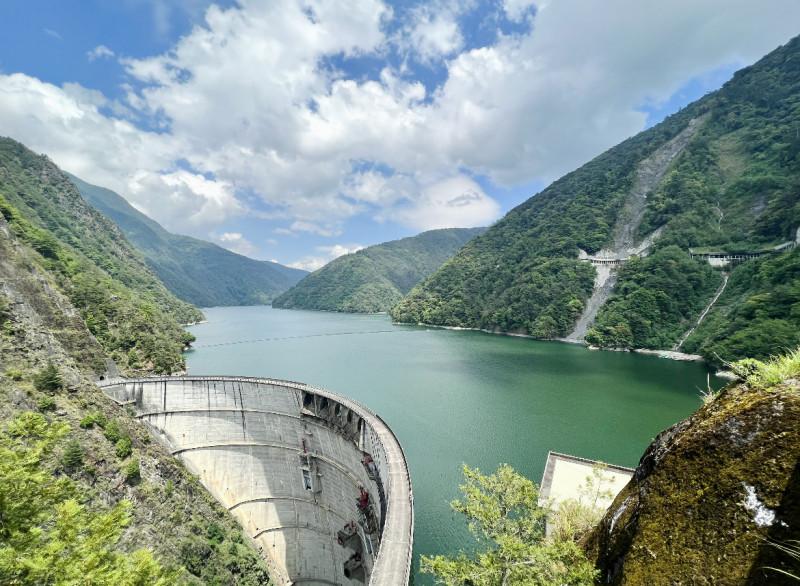The reserve margin yesterday recovered to more than 6 percent after 8pm, and the overall power supply remains stable, Taiwan Power Co (Taipower) said in a statement today, after the reserve margin dropped to 4 percent during the evening peak yesterday.
The drop in power reserves was temporary, Taipower said, adding that it is leveraging its hydroelectric resources, considering that two potential typhoons are expected to bring significant rainfall to the nation.
Taipower had activated all five of its standby units at its two power plants in Kaohsiung, as its operating reserves dropped below 6 percent due to the hot weather and mechanical failures, the company said yesterday.

Photo: Lin Ching-hua, Taipei Times
Four old coal-powered generators at the Hsinta Power Plant and one gas-powered unit at the Talin Power Plant have been activated to maintain an adequate reserve level during nighttime peak hours, Taipower said.
Power reserves yesterday morning dropped to 9.06 percent, triggering a "yellow light" warning, due to increased electricity usage over several consecutive hot days in northern Taiwan, the company said.
In addition, solar power output fell in southern Taiwan because of overcast skies and rainy weather in the afternoon, it said.
Reserves fell to 4 percent, Taipower said last night.
The situation was exacerbated by a power deficit of 2,900 megawatts caused by problems at the Hsinta Power Plant in Kaohsiung and the Linkou Power Plant in New Taipei City, the company said.
Hsinta Power Plant's new natural gas unit has been shut down since Sept. 11 when a fire broke out there due to a gas leak, while the Linkou Power Plant's Unit 2 on Monday went offline after a system malfunction, followed by its Unit 1 on Tuesday as a result of a pipe leak, Taipower said.
A power reserve of more than 10 percent is considered "safe," while a reserve of 6 to 10 percent triggers a "yellow light" warning, and below 6 percent prompts an "orange light" warning, likely resulting in power rationing, Taipower's Web site says.

The Coast Guard Administration (CGA) yesterday said it had deployed patrol vessels to expel a China Coast Guard ship and a Chinese fishing boat near Pratas Island (Dongsha Island, 東沙群島) in the South China Sea. The China Coast Guard vessel was 28 nautical miles (52km) northeast of Pratas at 6:15am on Thursday, approaching the island’s restricted waters, which extend 24 nautical miles from its shoreline, the CGA’s Dongsha-Nansha Branch said in a statement. The Tainan, a 2,000-tonne cutter, was deployed by the CGA to shadow the Chinese ship, which left the area at 2:39pm on Friday, the statement said. At 6:31pm on Friday,

The Chinese People’s Liberation Army Navy’s (PLAN) third aircraft carrier, the Fujian, would pose a steep challenge to Taiwan’s ability to defend itself against a full-scale invasion, a defense expert said yesterday. Institute of National Defense and Security Research analyst Chieh Chung (揭仲) made the comment hours after the PLAN confirmed the carrier recently passed through the Taiwan Strait to conduct “scientific research tests and training missions” in the South China Sea. China has two carriers in operation — the Liaoning and the Shandong — with the Fujian undergoing sea trials. Although the PLAN needs time to train the Fujian’s air wing and

Taiwanese celebrities Hank Chen (陳漢典) and Lulu Huang (黃路梓茵) announced yesterday that they are planning to marry. Huang announced and posted photos of their engagement to her social media pages yesterday morning, joking that the pair were not just doing marketing for a new show, but “really getting married.” “We’ve decided to spend all of our future happy and hilarious moments together,” she wrote. The announcement, which was later confirmed by the talent agency they share, appeared to come as a surprise even to those around them, with veteran TV host Jacky Wu (吳宗憲) saying he was “totally taken aback” by the news. Huang,

The American Institute in Taiwan (AIT) put Taiwan in danger, Ma Ying-jeou Foundation director Hsiao Hsu-tsen (蕭旭岑) said yesterday, hours after the de facto US embassy said that Beijing had misinterpreted World War II-era documents to isolate Taiwan. The AIT’s comments harmed the Republic of China’s (ROC) national interests and contradicted a part of the “six assurances” stipulating that the US would not change its official position on Taiwan’s sovereignty, Hsiao said. The “six assurances,” which were given by then-US president Ronald Reagan to Taiwan in 1982, say that Washington would not set a date for ending arm sales to Taiwan, consult